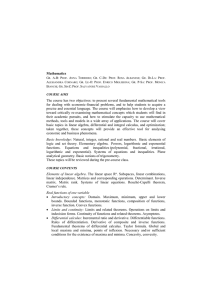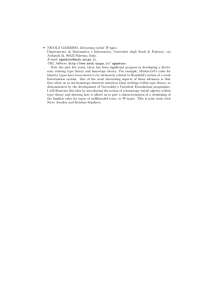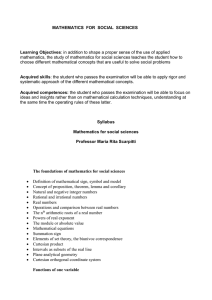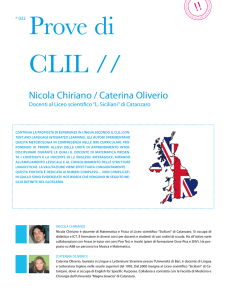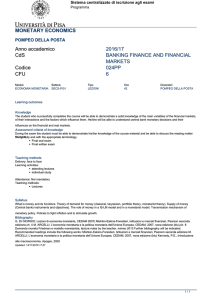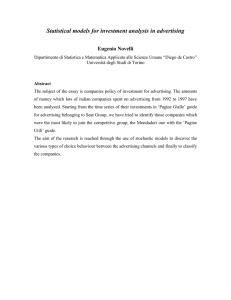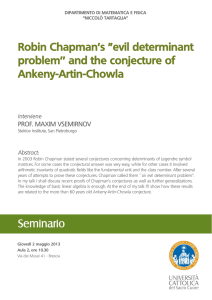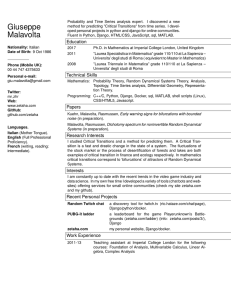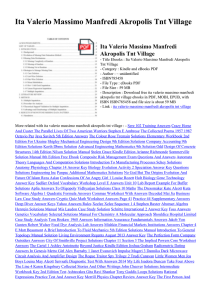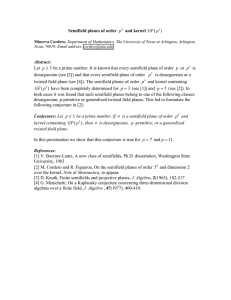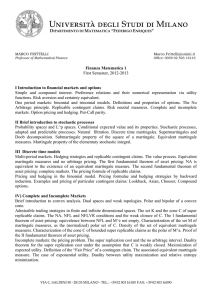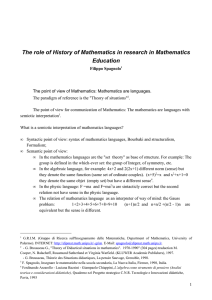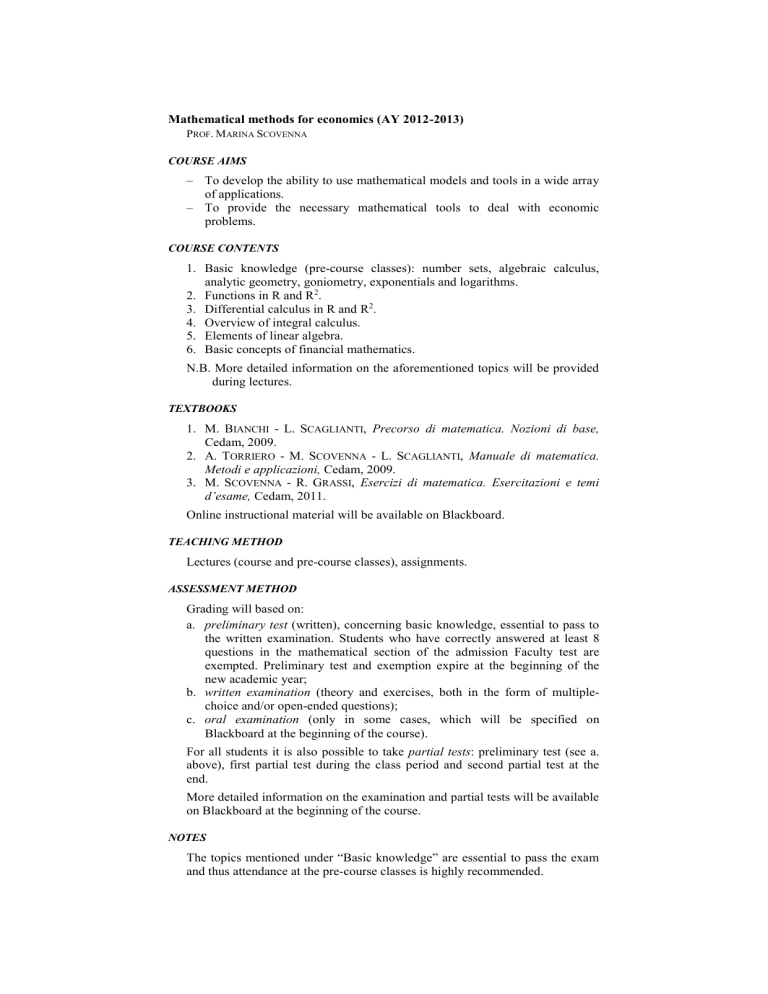
Mathematical methods for economics (AY 2012-2013)
PROF. MARINA SCOVENNA
COURSE AIMS
– To develop the ability to use mathematical models and tools in a wide array
of applications.
– To provide the necessary mathematical tools to deal with economic
problems.
COURSE CONTENTS
1. Basic knowledge (pre-course classes): number sets, algebraic calculus,
analytic geometry, goniometry, exponentials and logarithms.
2. Functions in R and R2.
3. Differential calculus in R and R2.
4. Overview of integral calculus.
5. Elements of linear algebra.
6. Basic concepts of financial mathematics.
N.B. More detailed information on the aforementioned topics will be provided
during lectures.
TEXTBOOKS
1. M. BIANCHI - L. SCAGLIANTI, Precorso di matematica. Nozioni di base,
Cedam, 2009.
2. A. TORRIERO - M. SCOVENNA - L. SCAGLIANTI, Manuale di matematica.
Metodi e applicazioni, Cedam, 2009.
3. M. SCOVENNA - R. GRASSI, Esercizi di matematica. Esercitazioni e temi
d’esame, Cedam, 2011.
Online instructional material will be available on Blackboard.
TEACHING METHOD
Lectures (course and pre-course classes), assignments.
ASSESSMENT METHOD
Grading will based on:
a. preliminary test (written), concerning basic knowledge, essential to pass to
the written examination. Students who have correctly answered at least 8
questions in the mathematical section of the admission Faculty test are
exempted. Preliminary test and exemption expire at the beginning of the
new academic year;
b. written examination (theory and exercises, both in the form of multiplechoice and/or open-ended questions);
c. oral examination (only in some cases, which will be specified on
Blackboard at the beginning of the course).
For all students it is also possible to take partial tests: preliminary test (see a.
above), first partial test during the class period and second partial test at the
end.
More detailed information on the examination and partial tests will be available
on Blackboard at the beginning of the course.
NOTES
The topics mentioned under “Basic knowledge” are essential to pass the exam
and thus attendance at the pre-course classes is highly recommended.

